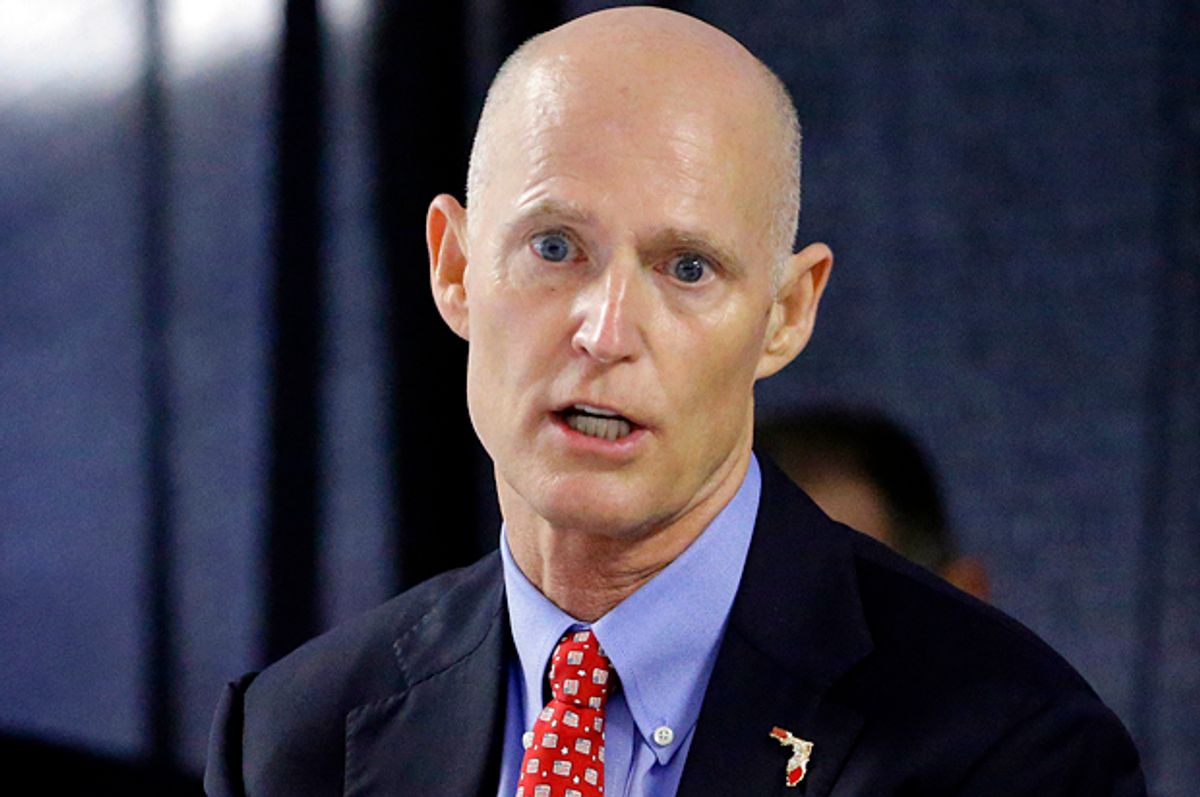Rick Scott may have found a way of making climate denial state policy, but the Florida governor is going to have a hard time ignoring this. The Federal Emergency Management Agency (FEMA) just updated its guidelines for state disaster preparedness plans, and under the new policy, plans will only be approved -- and federal funds appropriated -- if they address the threats of climate change.
"The challenges posed by climate change, such as more intense storms, frequent heavy precipitation, heat waves, drought, extreme flooding, and higher sea levels, could significantly alter the types and magnitudes of hazards impacting states in the future," the guidelines explain. They direct states to "assess vulnerability, identify a strategy to guide decisions and investments, and implement actions that will reduce risk, including impacts from a changing climate."
InsideClimateNews argues that the FEMA, intentionally or not, has delivered a trump card for climate advocates frustrated with politicians' refusal to acknowledge the reality of climate change. FEMA allocates an average of $1 billion per year to disaster preparedness programs, reporter Katherine Bagley explains -- funds that states won't be privy to if they refuse to comply with the guidelines. (Note that disaster relief funds are a different matter and will not be affected.)
"If a state has a climate denier governor that doesn't want to accept a plan, that would risk mitigation work not getting done because of politics," Becky Hammer, an attorney with the Natural Resources Defense Council's water program, told Bagley. "The governor would be increasing the risk to citizens in that state" -- thus raising the stakes of denying the science considerably.
The Natural Resources Defense Council has been pushing FEMA to adopt a policy like this for a long time now -- not necessarily to play "gotcha" with climate deniers, but because including the climate change, and the way it intensifies natural hazards, in disaster preparedness plans just makes good sense. Some states have already started doing this on their own: California's plan, for example, discuses climate change as "a factor intensifying impacts of many natural hazards" already facing the state, from sea level rise to changing precipitation levels to its link to extreme weather events like heat waves, droughts and floods, and details the ways in which it plans to both reduce emissions and adapt to those threats. But 18 states, according to a report conducted by Columbia Law School’s Center for Climate Change Law, are either dismissive of climate change or don't address it at all.
Perhaps because the issue is literally encroaching on its shores, Florida does acknowledge sea level rise. Under FEMA's guidelines, the state may have to go further and actually acknowledge the cause. A spokesman for Florida’s emergency management division told Climate Central that they're not going to fight it: “As far as FEMA is concerned, they’re a federal partner to us,” he said. “Whatever guidance they issue, we will follow those rules.” It'll help, to be sure, that by the time the next plan is due, in 2018, Scott will no longer be in office.



Shares